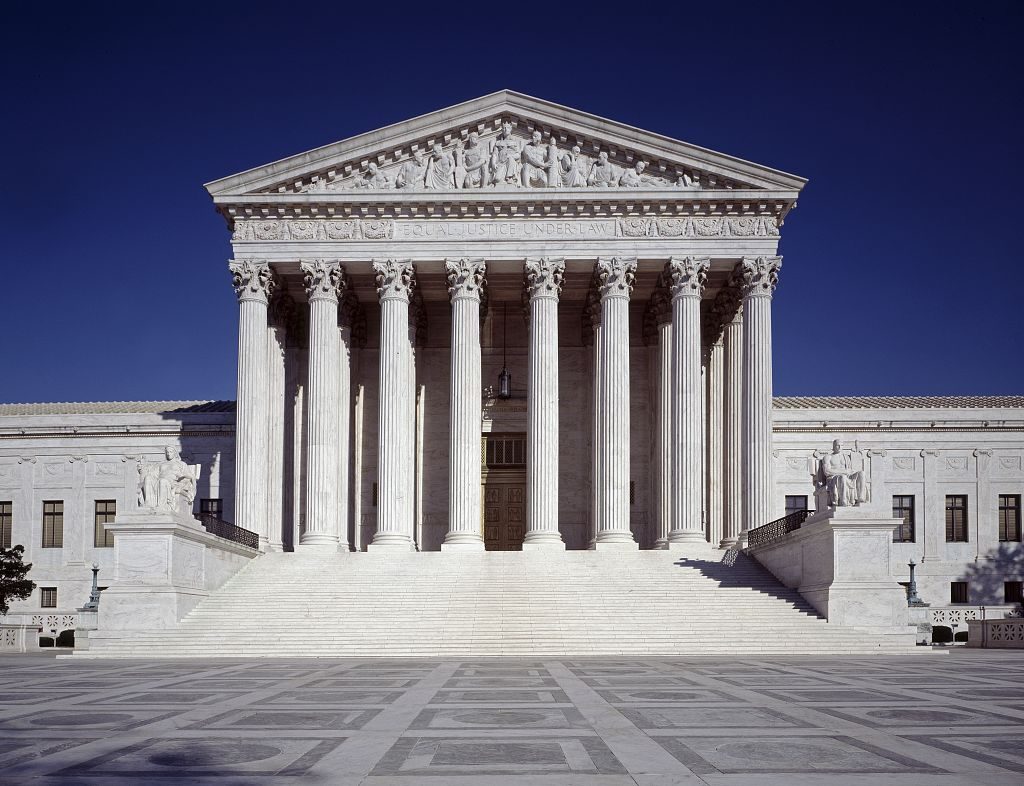Is offensive speech, and especially hate speech, protected by the First Amendment?
Some protesters use profane and scurrilous language to make their point. Others like the neo-Nazis and other white supremacists who marched at Charlottesville in August 2017 to oppose the removal of a Confederate statue use words or symbols of hatred directed against African-Americans, Jews, Muslims, and other minorities. While many countries ban hate speech, the U.S. has taken a different path. The Supreme Court has consistently ruled that such speech enjoys First Amendment protection unless it is directed to causing imminent violence or involves true threats against individuals.
Offensiveness: Vulgar Words
The First Amendment protects the use of vulgar and scurrilous words. In 1971, the Supreme Court reversed the conviction of Paul Robert Cohen, who was convicted of “offensive conduct” for wearing a jacket bearing the words “Fuck the Draft” in a Los Angeles courthouse. Writing for the Court, Justice Harlan said in Cohen v. California that particular words have emotional power and that prohibiting offensive words carries “a substantial risk of suppressing ideas in the process.” He emphasized that the state’s claimed power to regulate offensive words “seems inherently boundless. How is one to distinguish this from any other offensive word? Surely the State has no rights to cleanse public debate to the point where it is grammatically palatable to the most squeamish among us.” Harlan added, in a memorable line: “For, while the particular four-letter word being litigated here is perhaps more distasteful than most others of its genre, it is nevertheless often true that one man’s vulgarity is another’s lyric.”
Cohen v. California, 403 U.S. 15 (1971)
Oyez Supreme Court TextOffensiveness: Hate Speech
The Cohen case involved the use of a word that some people find offensive. But hate speech goes further, with its offensiveness coming from an expressed idea—that people of a certain race, religion, gender, sexual orientation, ethnic origin, or disability are inferior and should be denied respect or even the rights of American citizenship.
Laws that prohibit hate speech run afoul of the fundamental First Amendment principles. The Supreme Court has said consistently over the last half century that the First Amendment prohibits the government from targeting the content of speech unless it falls within an unprotected category such as incitement to violence, true threats, fighting words, and obscenity. In the 1969 case of Brandenburg v. Ohio, the Court reversed the conviction of a member of the Ku Klux Klan because his speech was not directed to inciting imminent lawless action. However, in the 2003 case, Virginia v. Black, the Court ruled that cross burning can be punishable if the state can prove an intent to intimidate; such acts would constitute “true threats” unprotected by the First Amendment.
The government also may not regulate speech based on the viewpoint expressed. The government cannot choose sides in the marketplace of ideas, permitting speech that is positive about a racial or religious group, for example, but banning speech that is critical or derogatory. When neo-Nazis attempted in 1977 to march in the Chicago suburb of Skokie, the home to many survivors of the Holocaust, the town responded with ordinances to prevent the demonstrations. In Collin v. Smith, the U.S. Court of Appeals for the Seventh Circuit protected the Nazis’ right to march. As the court said, quoting several Supreme Court cases, a state may not “make criminal the peaceful expression of unpopular views.” The court continued: “Any shock effect . . . must be attributed to the content of the ideas expressed. It is firmly settled that under our Constitution the public expression of ideas may not be prohibited merely because the ideas are themselves offensive to some of their hearers.”
More recently, the Supreme Court delivered an unequivocal ruling on hate speech in the 2017 trademark case, Matal v. Tam. Rock singer Simon Tam tried to register “The Slants” as the name for his band, whose members were Asian-Americans. His intention was to neutralize the derogatory meaning of the word for people of Asian descent. But the Patent and Trademark Office denied the application, citing the Lanham Act that prohibited trademark registrations that may “disparage . . . or bring . . . into contemp[t] or disrepute” any racial or ethnic group.
Writing for the Court, Justice Alito said that the Lanham Act constituted impermissible discrimination based on viewpoint. The law’s prohibition of offensive ideas “strikes at the heart of the First Amendment. Speech that demeans on the basis of race, ethnicity, gender, religion, age, disability, or any other similar ground is hateful; but the proudest boast of our free speech jurisprudence is that we protect the freedom to express ‘the thought that we hate.’”
In a concurring opinion joined by three justices, Justice Kennedy wrote that it is “a fundamental principle of the First Amendment that the government may not punish or suppress speech based on disapproval of the ideas or perspectives the speech conveys. The First Amendment guards against laws ‘targeted at specific subject matter,’ a form of speech suppression known as content based discrimination. This category includes a subtype of laws that go further, aimed at the suppression of ‘particular views . . . on a subject.’ A law found to discriminate based on viewpoint is an ‘egregious form of content discrimination,’ which is ‘presumptively unconstitutional.’” Kennedy explained that under the Lanham Act’s disparagement clause, “an applicant may register a positive or benign mark but not a derogatory one. The law thus reflects the Government’s disapproval of a subset of messages it finds offensive, the essence of viewpoint discrimination.”
Brandenburg v. Ohio
Oyez Supreme Court Text>Virginia v. Black, 538 U.S. 343 (2003)
Oyez JustiaCollin v. Smith, 578 F.2d 1197 (1978)
Google>Matel v. Tam, Supreme Court of the United States, 582 U.S. __ (2017)
Supreme Court opinion Constitution Center Podcast
Tags

